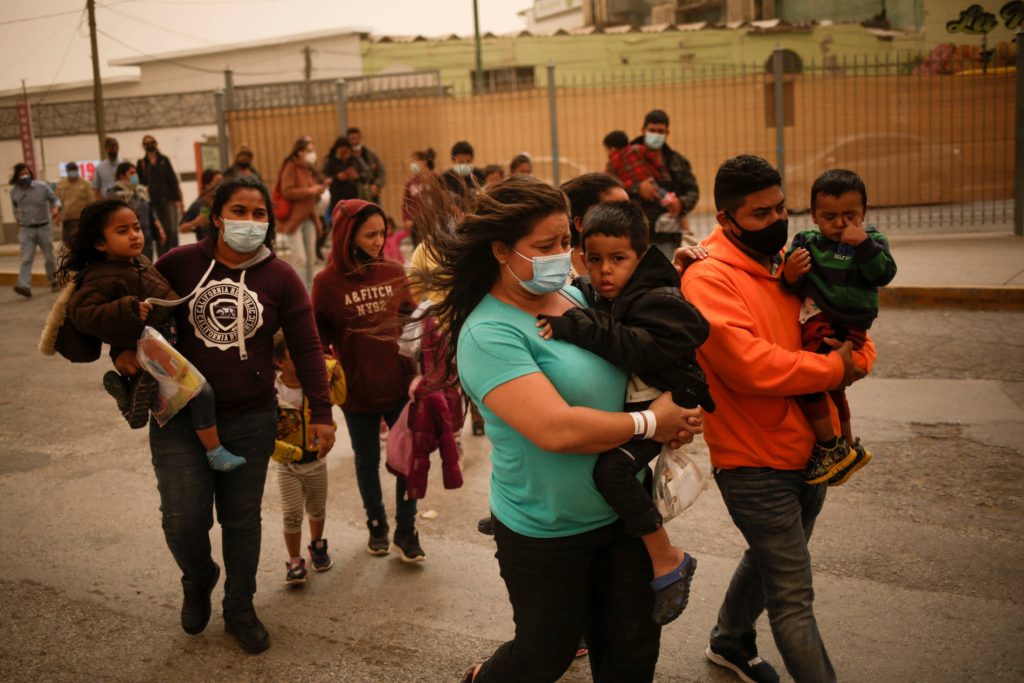By Father Michael J. Sinor
One of the things I really enjoyed about being the pastor at St. Didacus for more than 11 years was the diversity of the people in the parish and the school. We had folks from Russia, Egypt, Syria, Nigeria, Colombia, Mexico, Korea, Vietnam, England, Ireland, Ethiopia, Eritrea, China and many other countries. The different countries of origin gave our parish a small taste of what the universal Church was like.
Our men preparing for priesthood also have the opportunity to interact pastorally with our people in the Diocese of San Diego, including immigrants.
In August, I had the privilege of going with four of our seminarians to the Casa del Migrante in Tijuana. It was part of an immersion experience organized by Laura Martin-Spencer, the diocese’s Coordinator of Pastoral Formation at the St. Francis Center for Priestly Formation. I had volunteered at the Casa for a month during a sabbatical in 2014, and I had very positive memories and received a broader view of the world.
The Casa del Migrante is part of the ministry of Scalabrinian religious men and women. The Casa was founded in 1987 to assist the immigrants, refugees and those deported by the United States who arrive in Tijuana every day in search of a better life.
Father Patrick Murphy, the Scalabrinian priest and CEO, shared with me that the Casa has offered uninterrupted service for almost 37 years assisting more than 270,000 migrants. Their mission statement was taken from a passage in the Gospel of St. Matthew: “I was a stranger and you welcomed Me” (Matt 25:30). We also have two Scalibrinian priests stationed at the parish of Our Lady of Guadalupe in Chula Vista.
The four seminarians who went to the Casa had different cultural and educational backgrounds. I would like to share some of their thoughts about their experience.
Matthew Junker is a lawyer who is discerning priesthood.
“Being at the Casa helped me move past experiencing migration as an abstract political debate to encounter real people seeking safety and security. My heart was filled as I got to know families through serving meals and spending time with the kids playing dominos, helping with English, and cracking jokes. Pope Francis talks about God’s style being one of closeness, compassion and tenderness, and my time at the Casa helped form me in that style. I was blessed to be there, learning from these families and seeing that God is with them, walking with His people.”
Francisco Lopez, a transfer here from the seminary in Tijuana, had this to say:
“This is my second time going to the Casa del Migrante. It is always great being there, giving others the gift of serving and being with them to help them in a way that offers hope in our society. The Casa has impacted people, and even we who were there, because everyone is cared for with dignity and seen as an image of Christ present. The Casa has a place in my heart, and I will continue to pray and contribute whenever possible.”
Ralph Mariñas has a bachelor’s degree in Science in Medical Technology from the Philippines. This is what he wrote:
“Casa del Migrante is a privileged place in the eyes of God. In my brief stay there, I saw firsthand the promise of Christ that He will be with His people and that He will not abandon them. I met people who had to flee from their homes and experienced tremendous stress and anxiety, but Casa del Migrante became a safe haven where their needs were met and their souls given rest. It was truly an eye-opening experience, and it has given me a face and a sense of humanity to the issue of immigration.”
Liam Cruz Kelly is both Irish and Salvadoran. He has a doctorate in Medieval Literature. This is what he shared:
“At Casa del Migrante, you will encounter God’s favored people, the poor and searching. Some of these people are not unlike my own father, Guillermo Cruz, who immigrated to the U.S. from El Salvador in the 1980s. Despite many difficulties, he worked hard, pursued an education, learned English, obtained citizenship, became chair of the Economics department at our local college, and raised our family in the Catholic faith. Sadly, he passed away last November. But, as I served the residents of the Casa and as I spoke with them in my broken Spanish, I felt connected to him once again.
“I was also honored to cantor the Mass at the Casa one evening and, as I looked out onto the congregation, gathered in folding chairs, I saw my father’s face in theirs. The refrain of the responsorial psalm moved me deeply, as I chanted the words of Psalm 23 together with those who need so much: ‘El Señor es mi pastor, nada me faltará’ (The Lord is my Shepherd, nothing will I lack).”
At the beginning of the day and the end of the day, we are all sons and daughters of God. Who we are is who we are in God’s eyes.
Father Michael J. Sinor is Coordinator of Spiritual Direction at the diocese’s St. Francis Center for Priestly Formation.









